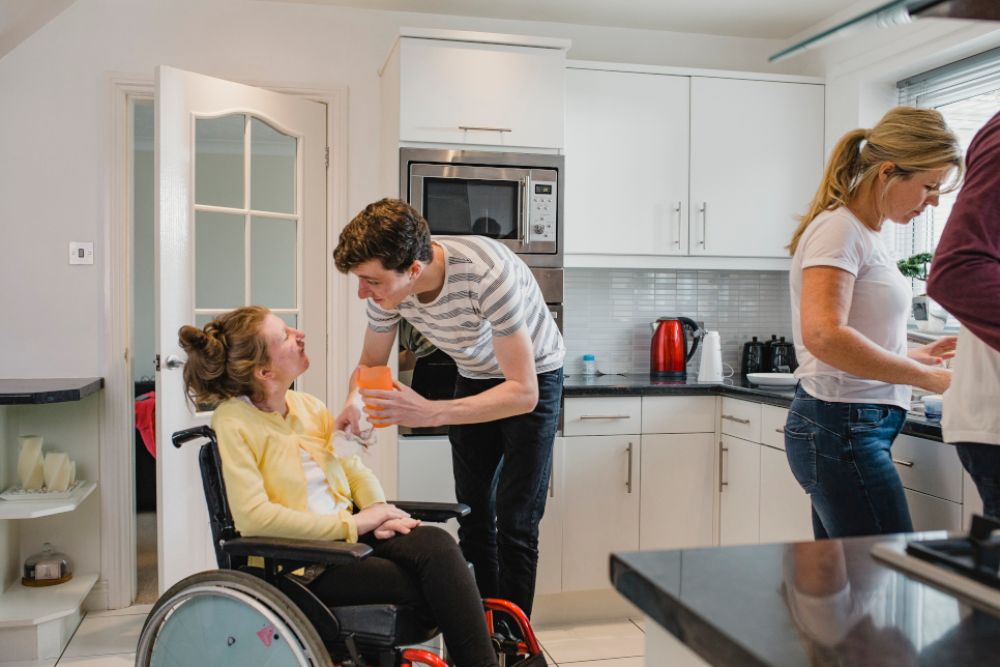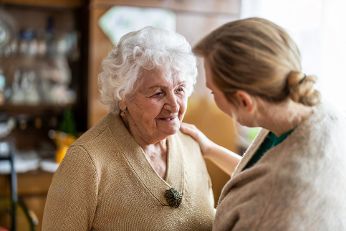
Growing up with a disability
How will the child develop and how can you support them once they have grown up? Family counseling is a possible point of contact for parents and their children. “During the counseling sessions we try to build a foundation of trust with the disabled child so they talk to us about topics they may not want to discuss with their parents. To do this, though, we need to have established successful contact with the parents,” Andrea Rothbucher explains.
It’s often difficult for siblings, too. “Siblings of disabled children often feel left out because the parents sometimes value small amounts of progress on the part of the disabled child much more highly and praise them much more than the fantastic things their sister/brother does.” It’s important that the sibling also receives appreciation and attention. For example, one day a month or a week can be dedicated to do special activities that would not otherwise be possible. “At the counseling center we also offer sibling meets,” explains Rothbucher.
The special thing about this is that the attention is solely on the child that does not have a disability. They can talk to other people and discuss all of the concerns, worries and possible anger with counselors. The goal of this is to promote bonding between the siblings. “That way we also find out how the siblings can have fun together. Even simple games can bring both of them a great deal of joy,” the counselor says from experience.
Puberty is often particularly difficult for disabled young people. While their physical development is often age-appropriate, it is very much possible that their emotional and psychosexual development is not keeping up. This means that they may sometimes have difficulty classifying their feelings. “Disabled young people want to get to know people too and have a girlfriend, for example. But it’s not as easy to make contact.” While the kids still play together in primary school, interests start to vary more significantly. “Sex education is particularly important for young people.
Particularly if they have a disability and need carers, they should know who is allowed to touch them where. They should have the strength to say no and be able to defend themselves,” emphasises Rothbucher. Lebenshilfe Salzburg offers various workshops for networking so they can socialise with other young people. The aim of these services is to enable them to be part of public life. “There’s never one single solution in counseling. The topics are always very individual and we always form our own opinion of each child so we can see where they need support – that’s the only way to achieve anything,” explains Rothbucher.
Our interview partner
Andrea Rothbucher is a qualified educational worker and marriage, family and life counselor specialising in family and child counseling at Lebenshilfe Salzburg.
Lebenshilfe Salzburg
Nonntaler Hauptstraße 55
5020 Salzburg
Website Lebenshilfe
The interview was conducted in September 2010 and revised in April 2022.


